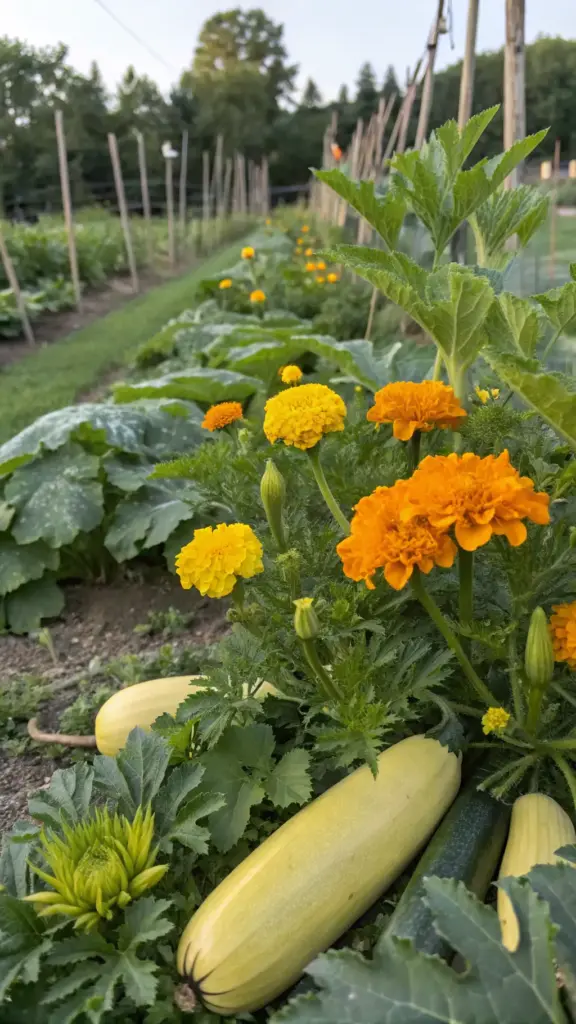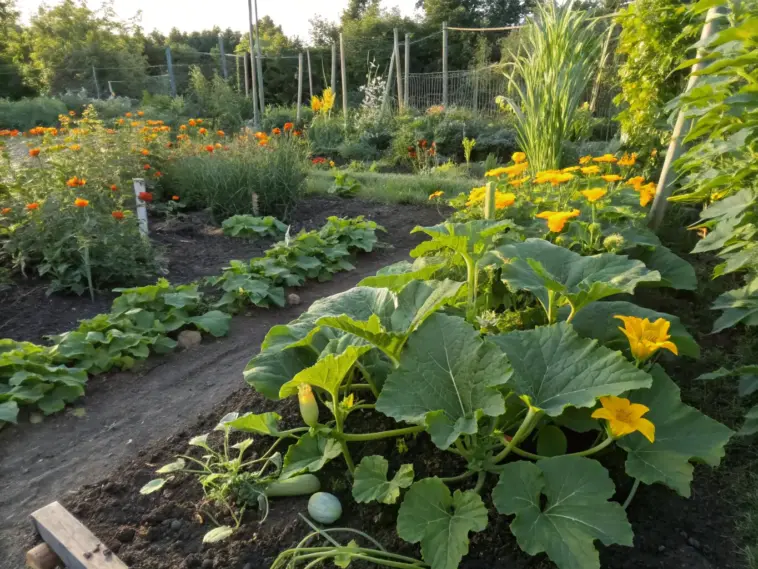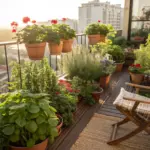I’ll be honest—when I first tried growing summer squash, it didn’t go well. 🙈 The leaves yellowed, the fruit was misshapen, and honestly? I was ready to give up. But then I discovered something game-changing: companion planting. Turns out, what you grow next to your squash matters just as much as the care you give it.
If you’re like me—juggling life in a busy city like LA or NYC, loving everything from DIY projects to home decor, and trying to sneak in a little gardening magic into your backyard or balcony—you’re going to love this list. Whether you’re planning a summer garden party, styling your outdoor space, or simply looking for a fun weekend craft idea, this guide will help you grow lush, thriving squash without the headache.
So let’s dive in! These 10 plants don’t just look pretty together—they work together. You’ll learn how each one boosts growth, deters pests, or even improves flavor. And bonus? Many of them are beautiful enough to fit right into your aesthetic garden design. Ready to turn your squash patch into a thriving, stylish oasis?
1. Marigolds: The Bright Guardians of Your Summer Squash Garden

Let me tell you a quick story. Last summer, I was so excited to grow my first round of zucchini and yellow squash in my little backyard plot in LA. 🌞 But then… the bugs came. Big time. Aphids, squash bugs—you name it. I felt like I was hosting an all-you-can-eat buffet for pests. That’s when my neighbor (a total gardening guru) leaned over the fence and said one word: “Marigolds.”
Why Marigolds Are My Go-To Companion Plant
Okay, so marigolds aren’t just pretty faces in the garden—they’re seriously hard workers. These little bloomers are known for their powerful pest-repelling properties, especially against nematodes, aphids, and squash bugs. And if you’ve ever dealt with those guys? You’ll try anything.
I started planting them around each squash hill and even tucked a few between rows. Within a week or two, I noticed fewer critters hanging out on my squash leaves. Turns out, marigolds release a scent that bugs absolutely hate. It’s like natural pest control without the chemicals—perfect for anyone who loves organic gardening tips or is into clean, sustainable living.
How I Grew Them (And What Worked Best)
Now, here’s the thing—I tried both starting from seed and using nursery transplants. Honestly? Both work great, but if you’re short on time (like most of us city-dwelling multitaskers), go with transplants. They get established faster and start working their magic right away.
If you’re into DIY garden ideas or want to save money, start seeds indoors 6–8 weeks before your last frost date. Once they sprout, thin them out carefully. I messed up the first batch by overcrowding the seedlings—lesson learned! Give ‘em space to breathe.
Pairing Marigolds with Squash: Function Meets Style
One of my favorite things about marigolds is how well they pair with squash in both garden design and function. Their bright orange and yellow blooms contrast beautifully with the large green squash leaves—it’s like nature’s version of a curated vignette. 🎨
They also do double duty as cut flowers! I’d snip a few every weekend and throw them in a mason jar on my kitchen counter. Instant home decor, and totally free. Bonus points if you’re into edible flowers—marigold petals are safe to eat and add a fun pop of color to salads or drinks.
So yeah, marigolds have officially earned their spot in my companion planting chart. If you’re new to growing squash successfully, start with these cheerful little protectors. You won’t regret it.
👉 Ready to see what other plants play nice with squash? Click Next to check out #2 on the list—this one might surprise you!










GIPHY App Key not set. Please check settings